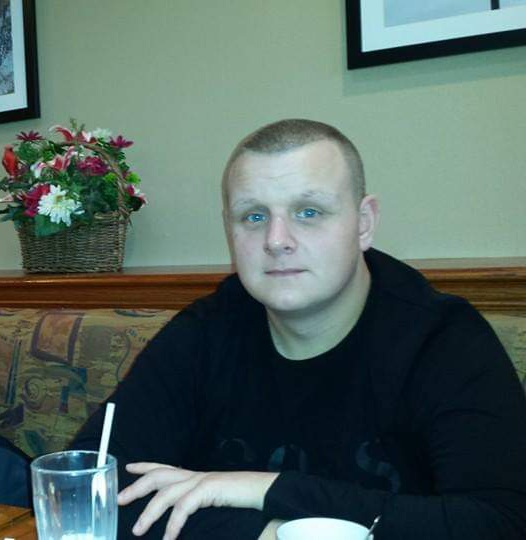As a mother, Pamela Young slept with her cell phone ringer on loud for years, both waiting for, and dreading, the worst call a parent could receive.

Her 32-year-old son Glenn Jr. passed away from an overdose last June. He is one of nearly 7,000 British Columbians who have died of overdose since 2016 when the overdose public health emergency was declared. He left behind not only his mother but also a partner and four children under the age of six.
“Because Glenn Jr struggled with substances, he felt very judged and carried around a lot of shame,” said Pam. “We need to support people and treat them equally, without judging them.
Glenn was in treatment for three months prior to his overdose. When he returned home, he relapsed, which is not uncommon. On Sunday, June 7, Glenn phoned Pam to ask if she could get him into detox. Being a Sunday, she said she would try her best to find a spot. She called back the next morning to say had found a bed for him. He didn’t pick up; he had died the night before.
“His death could have been prevented. I don’t understand why this has to go on for so long with such a huge impact on families."
Pam herself spent close to 20 years on the Downtown Eastside of Vancouver. With the support of family and friends, she has been sober for twelve years. Over the years, she has lost more than 100 friends and acquaintances to the toxic drug supply.
“It feels like people don’t matter, that our lives don’t matter,” she said.
She’d like to see investments made in mental health and substance use services, particularly in detox where the window for change is so narrow.
In her professional life, Pam manages
Unlocking the Gates, a community-based participatory peer health mentoring project that supports individuals leaving correctional facilities in B.C. with reintegration into society.
On top of her involvement with Unlocking the Gates – an initiative of the Collaborating Centre for Prison Health and Education at the University of British Columbia (UBC) and First Nations Health Authority – Pam is also the peer coordinator for the UBC Transformative Health and Justice Research Cluster.
This research cluster is affiliated with the BCCDC’s Provincial Overdose Cohort, a team led by Amanda Slaunwhite, a senior BCCDC scientist. The cohort uses administrative health data to inform the provincial overdose response in collaboration with the Overdose Emergency Response Centre, Ministry of Mental Health and Addictions and PHSA programs BCMHSUS and BC EHS.
In 2020, 1,724 people died of overdose, almost five people per day. Each of these persons leaves behind family, friends, and loved ones.
Pam hopes that people will remember Glenn Jr. as a good man with a beautiful heart who had so much potential and love to give others.
As we commemorate this grim milestone of the overdose public health emergency, we must acknowledge the trauma being inflicted on people who use substances and their friends and families.
If you are using drugs or know someone who is, please review the following resources:
Don’t use alone
Buddy up when using drugs. Using with a friend is safer than using alone even during the pandemic. Other options include:
Carry naloxone
Learn about overdose and benzodiazepines
- Responding to an opioid overdose with benzos or etizolam – This resource outlines how benzos or benzo-like substances can complicate and delay opioid overdose response, and what to do if these substances are involved.
- Do I Keep Giving Naloxone? - The toxic drug supply is making opioid overdoses look different, especially when they don't respond to naloxone quickly. This can be very stressful! Here are some tips to help
- Etizolam in BC's Illicit Drug Market - Fact Sheet for health professionals- This fact sheet provides information on etizolam and its presence in British Columbia's Illicit Drug Market.
- Benzos found in Opioids in BC - for Health Professionals - This summary sheet for health professionals provides information on the prevalence of benzos in opioids in British Columbia as well as drug checking, clinical considerations and additional resources.
Learn about injecting tablet medications
- Watch: Guidance for injecting tablet medication – This YouTube video series provides a resource for anyone who is injecting tablet medications (pills) and would like to do so more safely. Tablets medications (pills) from a pharmacy are less likely to cause an overdose compared to drugs or pills from the illicit market - this is because the dose and contents of prescribed drugs are known.
Get infomraiton from Moms Stop the Harm

